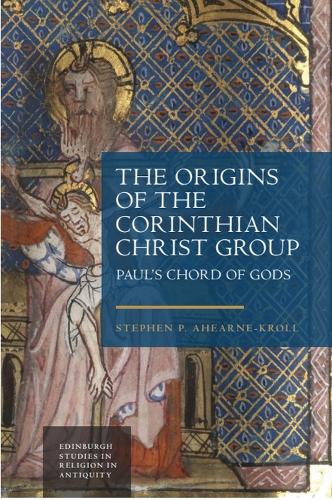
The Origins of the Corinthian Christ Group: Paul'S Chord of Gods
(Paperback)
Publishing Details
The Origins of the Corinthian Christ Group: Paul'S Chord of Gods
By (Author) Stephen Ahearne-Kroll
Edinburgh University Press
Edinburgh University Press
9th June 2026
United Kingdom
Classifications
Professional and Scholarly
Non Fiction
History of religion
Criticism and exegesis of sacred texts
Ancient religions and Mythologies
Ancient history
Physical Properties
Paperback
272
Width 156mm, Height 234mm
Description
The Origins of the Christ Movement in Corinth: Paul's Chord of Gods argues that Paul's language about his god (father, lord Jesus Christ and pneumawould have been familiar to Corinthian gentiles as a small group of gods a chord of gods. Worship of Paul's chord of gods matches the common religious practice (in Theodore Schatzki's sense) around the ancient Mediterranean and in Corinth and would have been familiar to the Corinthians. This religious practice could have formed the basis of attraction for the Corinthians to join Paul's Christ group, served as a social engine for its growth among gentiles in Corinth and been a source of conflict with Paul that he tries to address in his letters to the Corinthians.
Reviews
The question is deceptively simple: When Paul came to Corinth introducing a new triad of divine beings--the god of Israel, his son Christ and the pneuma--how might the locals have understood this Dismissing anachronistic notions of monotheism, Ahearne-Kroll offers a compelling new answer solidly grounded in ancient evidence.
--Brent Nongbri, MF Norwegian School of Theology, Religion, and SocietyAuthor Bio
Stephen P. Ahearne-Kroll is the Sundet Family Chair in New Testament and Christian Studies at the University of Minnesota, Minneapolis, MN USA. He is the editor of The Oxford Handbook of the Synoptic Gospels (Oxford University Press, 2023), author of the commentary on Mark in The Jerome Biblical Commentary for the Twenty-First Century (Bloomsbury Academic, 2022); coeditor with Paul A. Holloway and James A. Kelhoffer, of Women and Gender in Ancient Religion (Mohr Siebeck, 2010); and author of The Psalms of Lament in Mark's Gospel (Cambridge University Press, 2007). He has written on the role of memory in Asklepios sanctuaries and widely on the Gospel of Mark.
